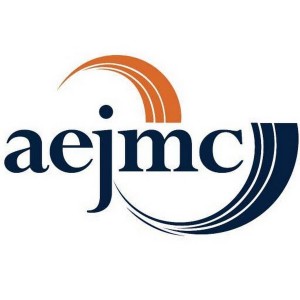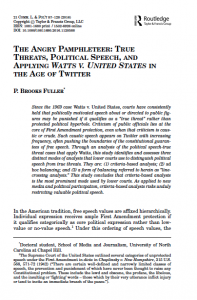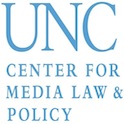 UNC graduate students will present half of all the papers accepted for presentation in the Law and Policy Division at the Association for Education in Journalism and Mass Communication’s (AEJMC) Southeast Colloquium in Baton Rouge, La., next month. Third-year Ph.D. student Brooks Fuller won the prize for the top student paper.
UNC graduate students will present half of all the papers accepted for presentation in the Law and Policy Division at the Association for Education in Journalism and Mass Communication’s (AEJMC) Southeast Colloquium in Baton Rouge, La., next month. Third-year Ph.D. student Brooks Fuller won the prize for the top student paper.
Congratulations!
The papers went through a process of blind review, with students and faculty competing in the same category.
Here is the title and abstract for Brooks’s prize-winning paper:
The Supreme Court case United States v. Jones is widely acknowledged as laying the jurisprudential foundation for the mosaic theory of informational harm in the context of the Fourth Amendment right to privacy. While Jones does not discuss criminal uses of information such as cyberharassment, the mosaic principles articulated by the concurring justices in Jones have surfaced as lower courts have interpreted the limits of First Amendment exceptions drafted into many cyberharassment statutes. These mosaic principles have not been recognized uniformly or explicitly, however. This paper suggests that legislatures should expand the scope of criminal cyberharassment statutes to address the ease of perpetrating harm through the use of mosaics while simultaneously crafting clear and necessary exceptions for constitutionally protected speech, specifically speech that involves the discussion of important matters of legitimate public concern.
The following are the other students’ names, paper titles, and paper abstracts:
Chioma Ihekweazu, “One is the New Two: An Examination of FTC Substantiation Requirements for Health Claims in Food Advertising and its First Amendment Implications” (Chioma is a Ph.D. student in the UNC School of Media and Journalism.)
In early 2015 after a four and a half year dispute between the FTC and POM Wonderful LLC, the D.C. Circuit Court ruled that the FTC could not apply a two randomized controlled trial standard to substantiate any health claim made in advertising. The POM case and others like it have raised issues about the free speech implications of the FTC’s historic and current substantiation requirements. This paper provides an analysis of forty years of FTC issued consent orders to food and beverage sellers over deceptive health claims. It specifically focuses on what the FTC has defined as “competent and reliable” scientific evidence in issued consent orders. In its earlier consent orders, the FTC largely refrained from specifying what constituted “competent and reliable” scientific evidence. Following the 2009 Lane Labs ruling where the Court ruled in favor of Lane Labs, the FTC began defining competent and reliable scientific evidence as at least two randomized controlled trials. The POM ruling, which has been applauded as a win for free speech, has abolished this arbitrary standard. However, it should not be viewed as a total victory for free speech. The FTC can still require companies to conduct two or more randomized controlled trials if the specific product and health claim being made warrant such evidence. Quite possibly in response to this, companies like POM Wonderful now use more vague claims in advertisements like “crazy healthy” that can’t be definitively proven.
Ray Whitehouse, “An Examination of Ag-Gag and Data Trespass Statutes” (Ray is a master’s student in the UNC School of Media and Journalism.)
Since 1990, nine states have passed legislation that aims to limit undercover investigations of agricultural operations. These “ag-gag” laws attempt to limit investigations in three ways: by criminalizing recording and reporting on operations, criminalizing deceptive entry into operations, and by mandating that anyone recording abuse report it within a short time period. In 2015, two major events related to ag-gag laws took place. First, a federal judge ruled that Idaho’s ag-gag law was unconstitutional. This case decision, the first examining ag-gag laws, cast doubt on the constitutionality of other state ag-gag laws. Second, Wyoming passed a “data trespass” law that criminalized collecting information on “open land” with the intent to give that information to government agencies. Agricultural activists filed suit, claiming that it was an unconstitutional ag-gag law aimed at stopping citizen activists from reporting Clean Water Act violations by ranchers who lease public land from the state. Lawmakers disagreed, arguing that the bill simply strengthened existing trespass laws. This paper compares Wyoming’s data trespass law with all existing ag-gag laws and Idaho’s recently overturned law to examine its constitutionality. This examination is important because it incorporates recent legal outcomes that before now have not been incorporated into analysis of ag-gag laws. It suggests that because both the Idaho and Wyoming laws are similar in their construction and the legal questions in their respective cases are similar, the Idaho decision is very applicable to Wyoming’s data trespass law and casts serious doubts upon the constitutionality of Wyoming’s data trespass statute.
Natalee Seely, “Twenty Years Later: The Application and Influence of McIntyre v. Ohio Elections Commission” (Natalee is a Ph.D. student in the UNC School of Media and Journalism.)
The Supreme Court case McIntyre v. Ohio Elections Commission established the value of anonymity in political expression. Twenty years since this seminal case, lower courts have applied McIntyre to anonymous online speech cases, in the absence of more recent decisions concerning anonymity in online contexts. This paper discusses how cases that have cited McIntyre in the past two decades applied the decision, as well as how these cases characterized anonymity. The analysis found that commercial speech cases typically resulted in decisions unfavorable to the speaker, while the majority of cases involving non-commercial speech ended favorably for the anonymous speaker—by either requiring a strict unmasking test or by granting the speaker’s motion to quash the subpoena seeking to identify the John or Jane Doe. The courts characterized anonymity as a significant component of individuals’ First Amendment rights, as a valuable tradition in American history, and as a free speech privilege that calls for balancing the rights of all parties involved.
Chanda Marlowe, “Student Data in Danger: What Happens When School Districts Rely on the Cloud” (Chanda is a J.D./M.A. dual degree student in the UNC School of Law and the School of Media and Journalism.)
According to Fordham Law School’s Center on Law and Information Policy’s report “Privacy and Cloud Computing in Public Schools,” 95% of public school districts rely on cloud services for a diverse range of functions. The use of cloud services raises serious privacy concerns. For example, in March of 2014, Google admitted to scanning students’ emails and gathering data that were used to target ads to those students. Under the threat of lawsuits, Google promised to stop; however, in December 2015, Google was accused of collecting and using student data for non-education purposes again, this time in violation of the Student Privacy Pledge that it signed January 2015. Yet, schools continue to contract with private sector corporations to obtain cloud services, leaving parents to wonder what information is collected on their children, how that information is being used, and how, if at all, that information is being protected. The purpose of this paper is to discuss the major privacy problems that school districts face when they rely on cloud services offered by private corporations, to analyze how FERPA and state privacy laws are addressing these problems, and to offer possible solutions that go beyond FERPA and state privacy laws. This topic is important because legislation must strike the right balance between protecting students’ personal information and meeting the technological needs of schools.
Lindsie Trego, “Indirect Censorship of Collegiate Media: Exploring Administrative Removal of Collegiate Media Advisers as First Amendment Retaliation Against Student Journalists” (Lindsie is a J.D./M.A. dual degree student in the UNC School of Law and the School of Media and Journalism.)
Cases of indirect administrative censorship of collegiate media—in which students are indirectly punished for press activity—have recently made news headlines. In many of these cases, college media faculty advisers have been administratively removed from their positions in response to disputes between student editors and administrators. These cases call into question whether student journalists can successfully seek legal redress for indirect acts against their First Amendment rights, including removal of their advisers. Specifically, some have questioned whether removal of college media advisers injures student journalists—a necessary element of proving a First Amendment claim. This paper examines the analyses courts have used in past cases to determine what administrative actions injure students and applies these analyses to determine whether removal of college media advisers constitutes injury to student journalists in the context of First Amendment litigation.



